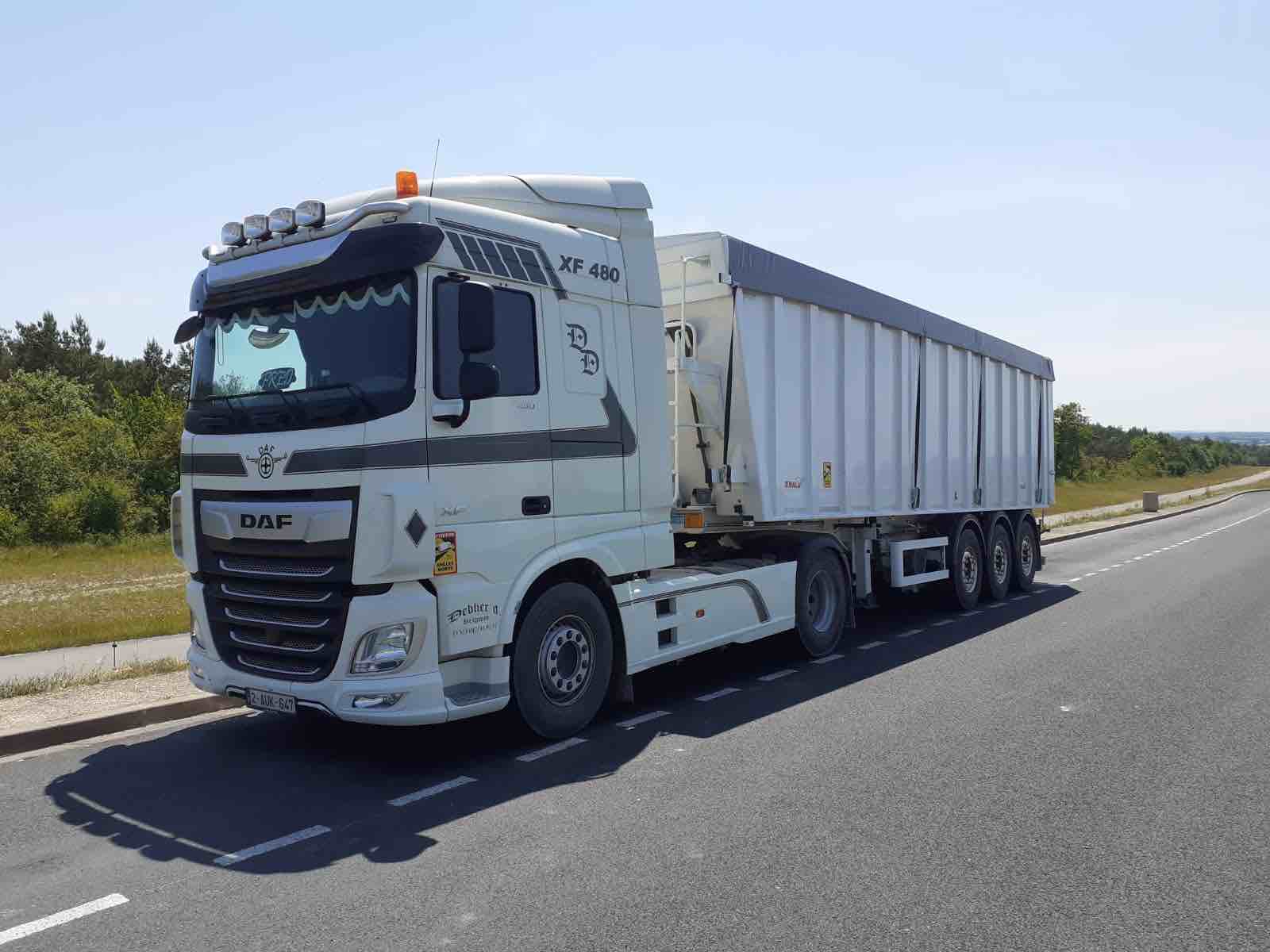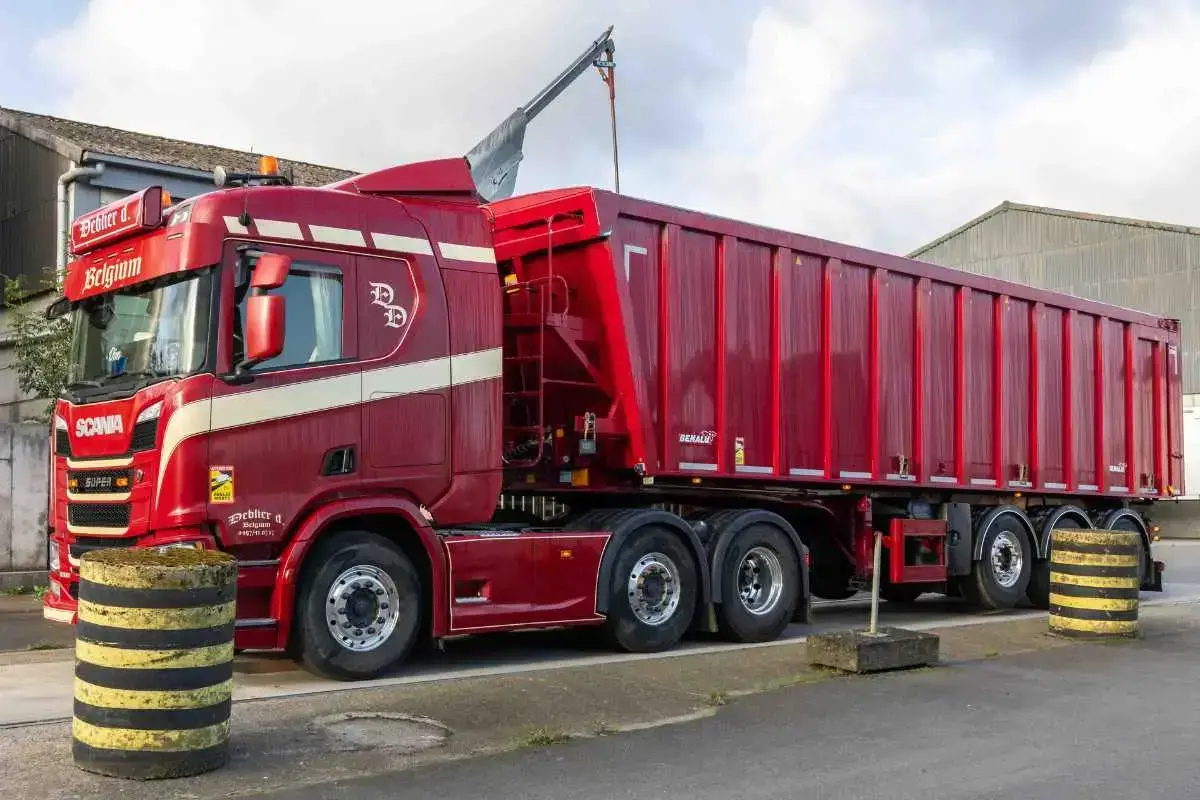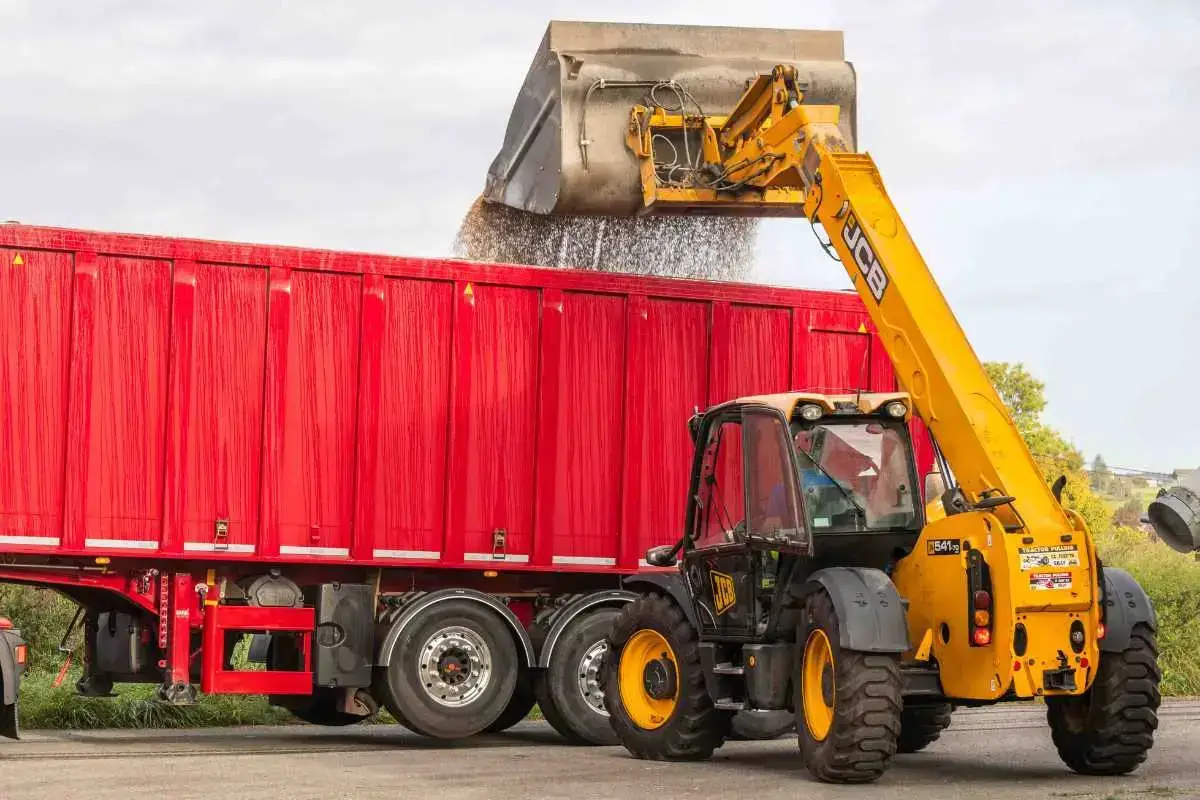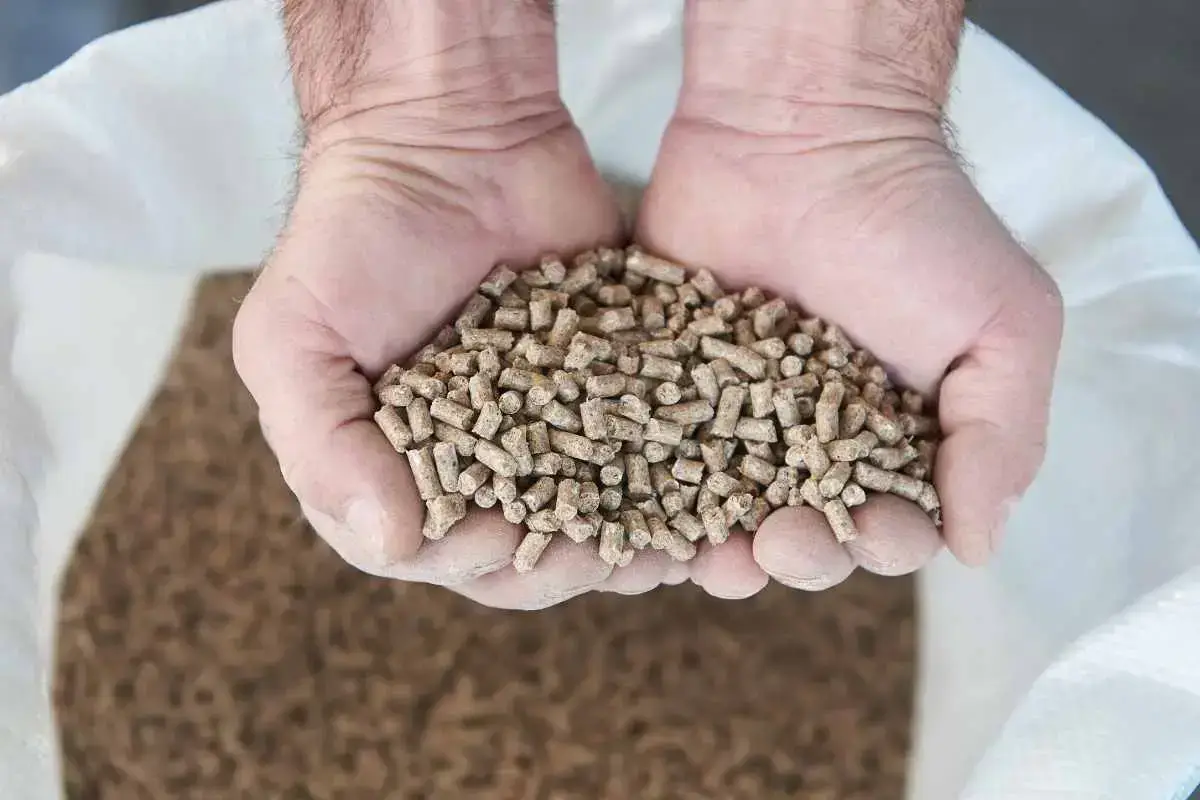Introduction
Animal feed is an essential pillar of the farming industry, determining the health and well-being of animals. Poor nutrition can lead to health problems in animals. Feed therefore plays a key role in the overall well-being of animals.
With this in mind, a variety of feed types are used, each playing a specific role in maintaining balanced nutrition.
This article explores the main categories of feed, particularly for livestock, highlighting their respective benefits, and examines the essential raw materials used in animal diets. We also look at the benefits of bulk trucking, and the importance of quality control via the FCA standard.
The different types of livestock feed
Feeding livestock is crucial to their health and well-being. There are different types of feed used in livestock diets. Here are some of the main types of feed for livestock:
Concentrated feed
Concentrated foods are foods rich in essential nutrients such as proteins, carbohydrates and minerals. They are generally made from cereals, oilseeds and by-products of the agri-food industry. Concentrated feeds offer a dense source of energy and nutrients, making them a popular choice for animal feed.
Forages
Forages are plant-based feeds such as hay, grass and maize silage. They provide a large proportion of the feed ration for livestock and are an important source of dietary fibre. Forages are rich in cellulose, which helps maintain the digestive health of animals.
Silage
Silage is a process for preserving moisture-rich green plants such as grass or maize. These plants are fermented anaerobiotically to produce a preserved feed called silage. Silage is used as a feed source during periods when pasture is not available or when the energy content of the animal’s feed needs to be increased.
Food supplements
Food supplements are foods that are added to the main ration to provide additional nutrients. They may take the form of granules, powders or liquids. Food supplements may contain vitamins, minerals, amino acids and other essential nutrients that are not present in sufficient quantities in other types of food.
The main raw materials used in animal feed
The raw materials used in animal feed are essential to ensure balanced, healthy nutrition for animals. They provide the nutrients needed for their growth, development and overall health. Here is an overview of the main raw materials commonly used:
Cereals, pulses and oilseeds
Cereals such as maize, wheat,barley and rice are among the most commonly used raw materials in animal feed. They provide essential carbohydrates in the form ofstarch, which supplies animals with energy. Legumes such as soya and peas also provide the high-quality protein needed for muscle growth.
Oilseeds such as rapeseed and sunflower are rich in lipids, which are a concentrated source of energy for animals. These raw materials play an important role in formulating a balanced diet to ensure healthy, productive animals.
Meat and fish
In addition to cereals and pulses, meat, fish and agricultural by-products can also be used as ingredients in animal feed. These sources of animal protein can be particularly beneficial for certain types of animal that require high-quality protein for growth and development.
Specific nutrients
Some raw materials used in animal feed are selected for the specific nutrients they provide. For example, soya is a rich source of protein and essential amino acids such as lysine, which is important for muscle growth in animals.
Other raw materials may be rich in minerals such as calcium, phosphorus or magnesium, which are essential for healthy bones and teeth in animals. It is therefore important to choose raw materials wisely in order to meet the specific nutritional needs of each animal species.
Quality and origin
The quality and provenance of the raw materials used in animal feed are crucial to ensuring a healthy diet for animals. Feed producers must ensure that their raw materials come from reliable sources and comply with the appropriate health standards.
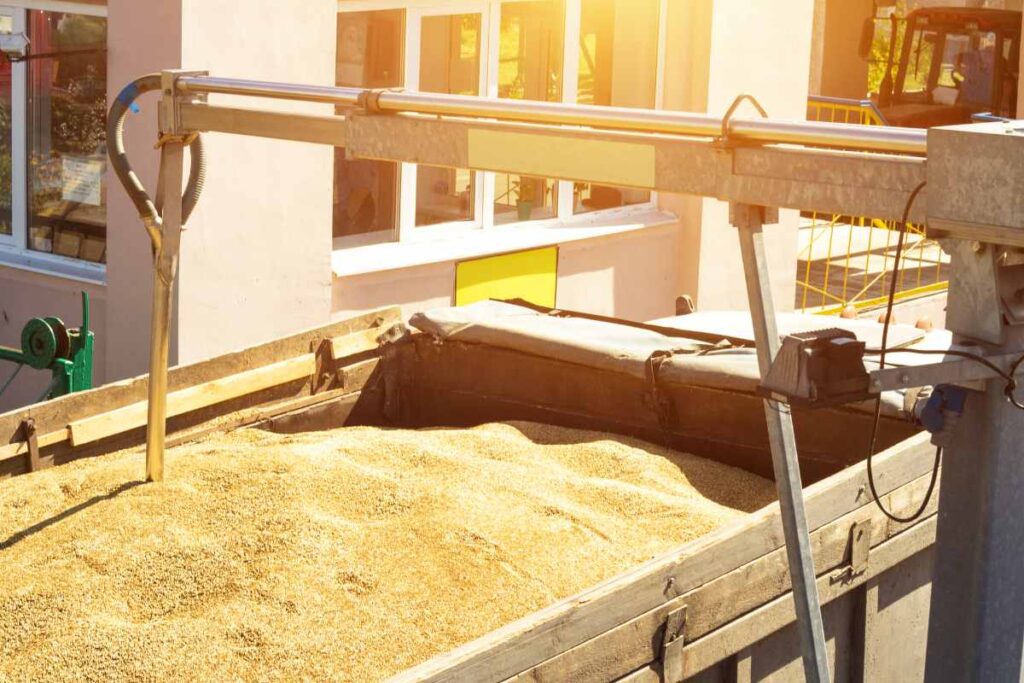
Bulk transport of cattle feed with Transports Dimitry Deblier
BULK transport of livestock feed is an essential task in the agricultural industry. At Transports Dimitry Deblier, we are experts in this field and offer reliable and efficient transport services to meet the needs of livestock farmers.
Advantages of BULK transport
BULK transport offers a number of advantages when it comes to transporting livestock feed:
- Economical: BULK transport enables large quantities of food to be transported at lower cost, as it avoids the need for individual packaging, which can be costly.
- Efficient: Loading and unloading food in BULK is quicker and easier than when it is individually packaged, saving considerable time.
- Environmentally friendly: Using BULK transport reduces the amount of waste generated by individual packaging, helping to protect the environment.
The services of Transports Dimitry Deblier
At Transports Dimitry Deblier, we offer a complete range of services for transporting livestock feed in BULK:
- Modern fleet: We have a modern, well-maintained fleet of 4 lorries suitable for BULK transport. These trucks are equipped with special systems to ensure that the feed remains intact during transport.
- Experience and expertise: We also have many years’ experience in transporting feed in bulk. Our team of drivers is trained to handle these materials safely and efficiently.
- Flexibility: We adapt to customers’ specific needs in terms of the quantity, frequency and destination of feed transport in bulk.
Security and quality
Safety and quality are of paramount importance when transporting BULK feed:
- Safety: Safety is paramount when transporting feed. We follow all current regulations to ensure safe transport of feed.
- Quality control: Livestock feed must be of the highest quality to guarantee their health and well-being. We ensure that feed is transported under optimum conditions to preserve its freshness and nutritional properties.
Quality control and assurance for the transport of animal feed: the FCA standard
The FCA (Feed Chain Alliance) standard is a certification system that guarantees compliance with good practice in the transport of animal feed. This standard aims to ensure food safety and traceability throughout the supply chain, from raw materials to livestock. FCA-certified companies must comply with strict criteria in terms of hygiene, storage, transport and documentation.
Thanks to the FCA standard, consumers can have confidence in the quality of the animal feed they buy. They can be sure that these products have been handled and transported under optimum conditions, without any risk of contamination or deterioration. What’s more, this certification also enables businesses in the agricultural sector to improve their image and reputation by demonstrating their commitment to food safety.
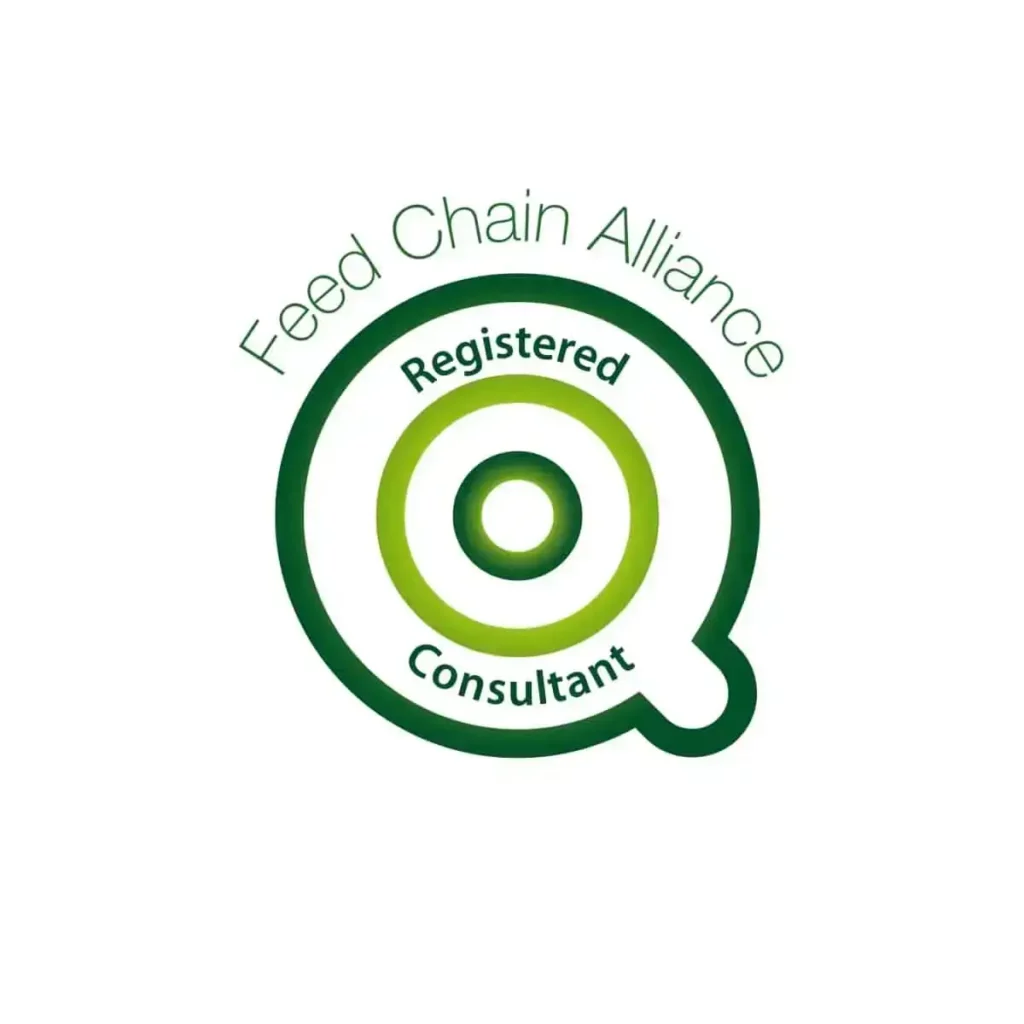
Conclusion
In conclusion, animal feed is a crucial element for the agricultural sector. The diversity of feeds available, from concentrates to forages, underlines the need for a holistic approach to the design of diets to ensure optimal animal health.
Similarly, the quality of raw materials and the efficient transport of these feeds are key elements in guaranteeing food safety for livestock and, by extension, for consumers. By adopting rigorous standards such as the FCA, the industry can not only strengthen public confidence in its products but also promote sustainable and responsible practices throughout the animal feed chain.
If you are looking for efficient transport solutions, please do not hesitate to contact us at Transport Dimitry Deblier. We are proud to offer reliable, cost-effective and environmentally-friendly transport services to meet your specific needs!
